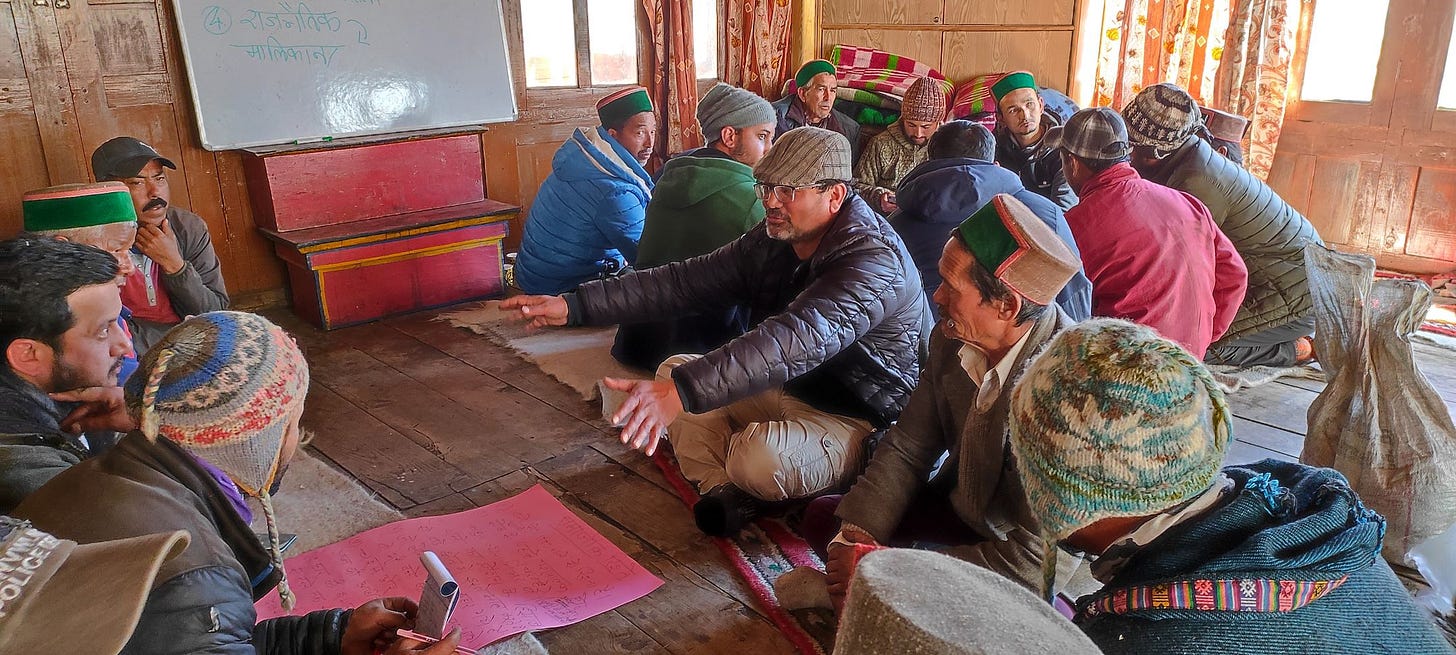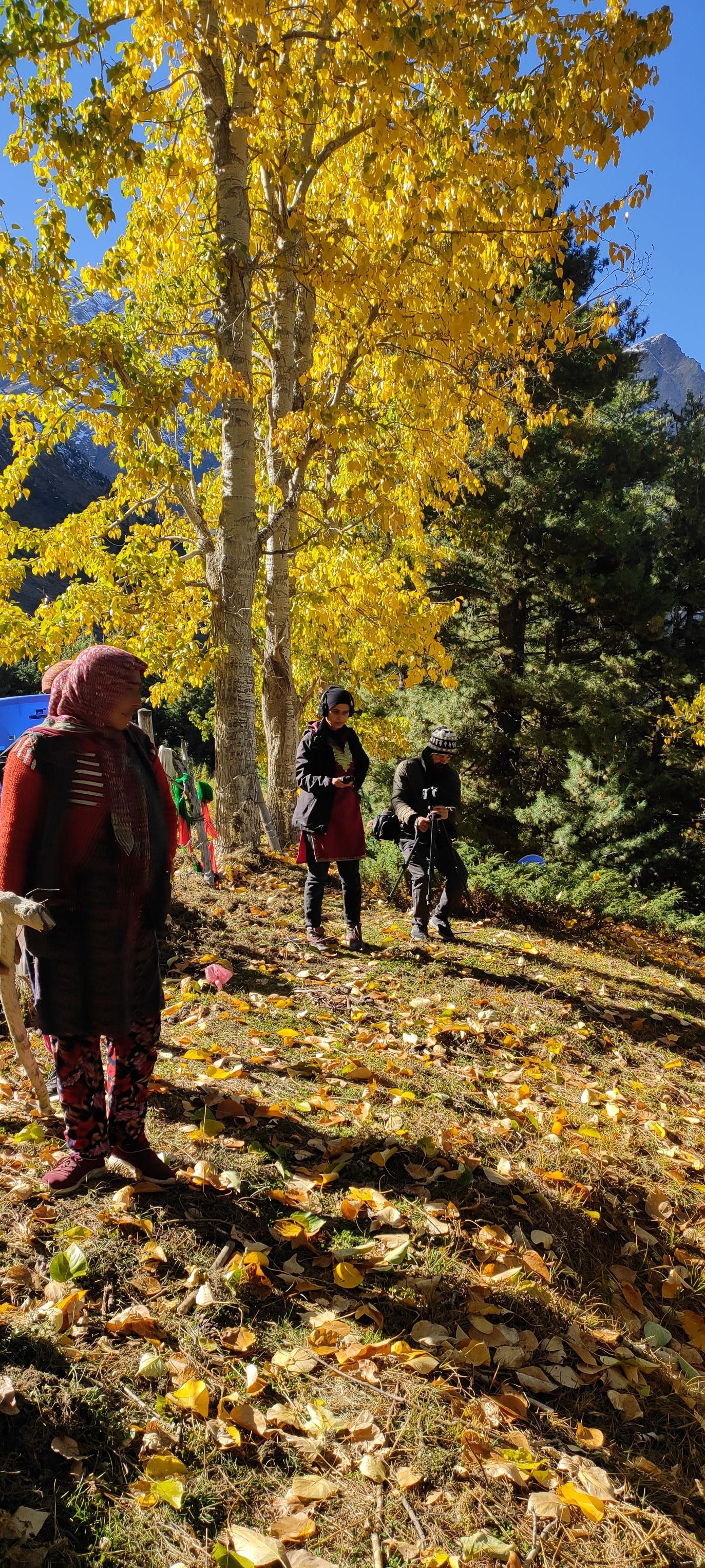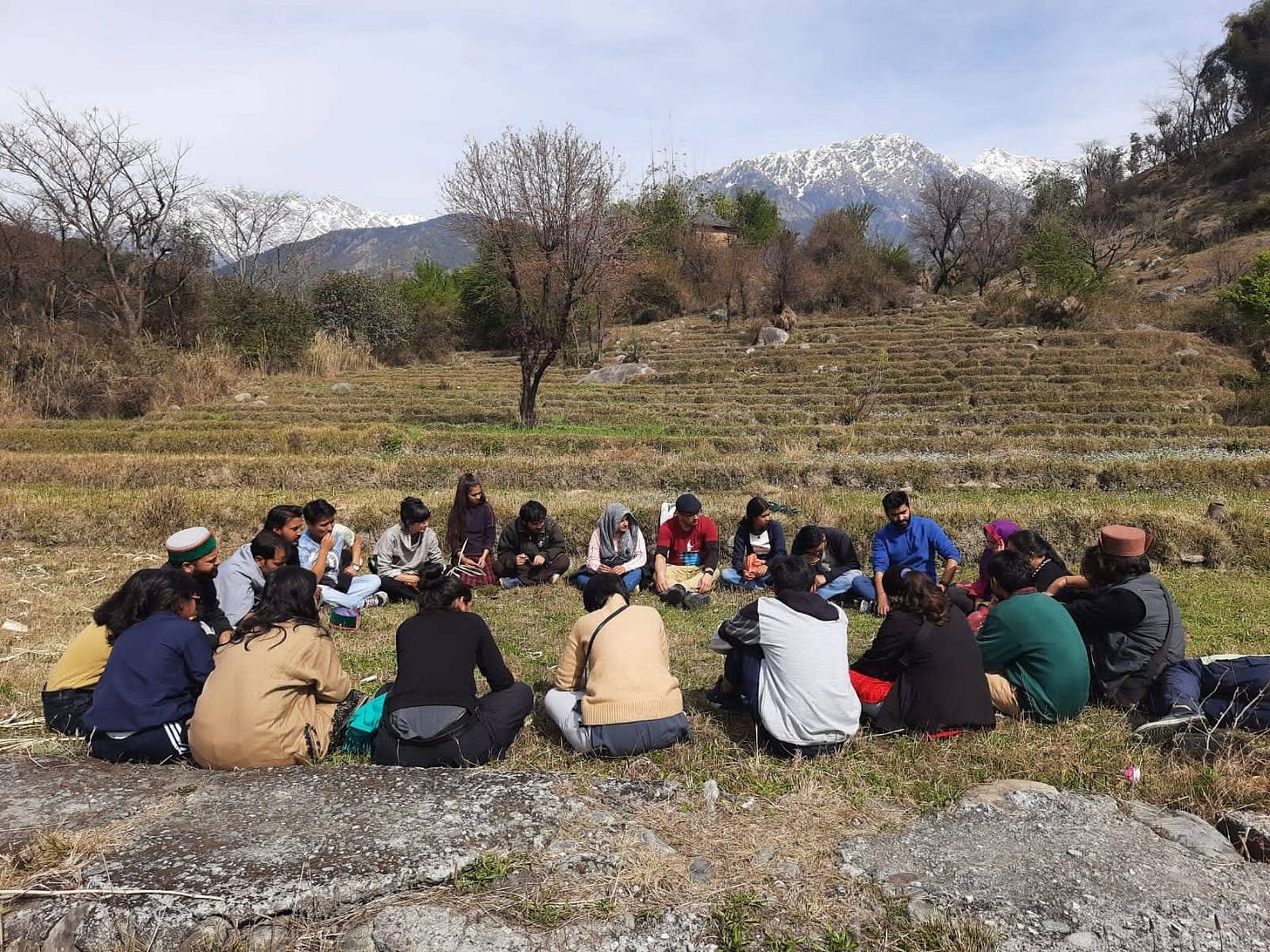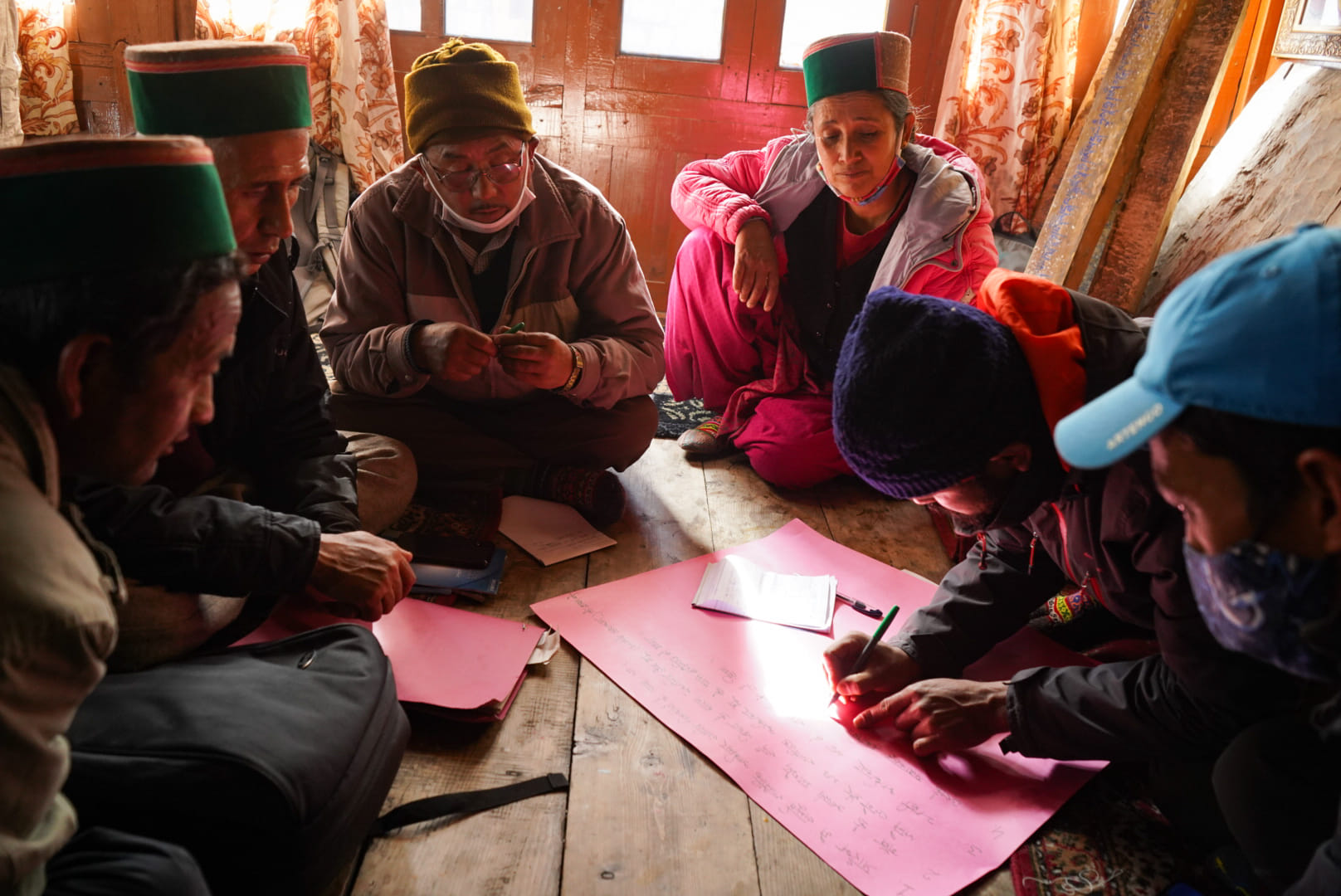Q. What does Himdhara do? Why was there a need for it?
Himdhara is a Himachal based environment research and action collective that was formed in 2009. The collective has been working with an environmental justice approach, supporting mountain communities asserting their right to access, use and protect their natural landscapes. The support work itself comprises documentation, dissemination, community dialogues and advocacy.
The need for such a ‘collective’ emerged from growing threats posed to mountain ecology and people’s nature-based livelihoods by policies and projects of the neoliberal extractive development model and top-down exclusive conservation. Alienation of forest and land dependent people from their resource base began in the colonial era and continued after independence, more evidently in the past few decades and this has led to wide ranging ecological, socio-cultural and economic shifts. While newer legal provisions were put in place during this time to protect the environment and rights of impacted communities, on one hand access to and just implementation of these has remained a far cry and on the other many of these policies have further alienated marginalised peoples like adivasis, dalits, women. Many of the democratic spaces in environmental decision making have been shrinking, with the push for ‘ease of doing business’ agenda.
The need thus has been to build a counter narrative by demonstrating the real adverse ecological and socio-economic impacts and costs of such a scenario and also support communities advocating for their livelihoods and their right to govern their resources using democratic spaces and constitutional provisions.
For instance, Himachal has over the last two decades seen various community led movements to raise issues around large-scale hydropower dams and how these have affected local lives and land-use. Himdhara has worked towards building evidence on the oft invisibilised and hidden costs of hydropower projects that are being pushed in the name of clean energy and green growth.

Prakash (in cap, centre), one of the co-founders of Himdhara, at a Forest Rights Workshop in Kinnaur
Over the years, as we understood the criticality of secure tenure over land, both for farming and forest uses, we joined the campaign for implementation of the Forest Rights Act 2006 in the state. In absence of basic information about the provisions of this radical law which guarantees individual and community rights over forest land and is a step towards decolonising forest governance too, we worked on demystifying the legislation by generating basic audio-visual material on it. Currently we are engaged in activating Forest Rights Committees through trainings and dialogues. We also feel the need to dialogue with the youth, which is imperative for any transformative work. One of our programs is an annual workshop called ‘Pahar Aur Hum: Rethinking development in the Himalaya’ which explores challenges in the Himalayan region with Pahari youth.
Q. How did the collective begin?
Initially we were three or four people from diverse backgrounds passionate about working in the mountains, who decided to pool our skills and perspectives to respond to the needs that came from different communities. We felt that just being located in the region was not sufficient to engage with ‘environmental justice’ issues and that a deeper interaction with the landscape and community led groups and movements was essential. We continue to function as an informal and autonomous support group driven by a common vision rather than as a formal structured organisation.https://www.youtube-nocookie.com/embed/Igoyj5POOeU?start=1%22&rel=0&autoplay=0&showinfo=0&enablejsapi=0
Q. What is the key difference between how thinktanks such as Himdhara – which are located in mountain areas – versus those in places like Delhi – see environmental issues?
I would not use the term ‘think tank’ to describe Himdhara, for several reasons. Firstly, as I mentioned earlier, we are a small collective, a support group with localised engagement, even as we constantly try to understand the bigger picture (national and global) which impacts the local.

Himdhara members Sumit and Himshi, working on a documentary in Lahaul.
Secondly, the term ‘think tank’ (which has a certain military connotation) in its current usage inherently means that ‘knowledge’ lies in a few ‘thinking’ minds and they will draft the policies and laws. That is precisely where the problem lies not just in the way governments work but also in how ‘civil society’ tends to operate, led by the elite and privileged. It takes away from the agency of people, citizens to be able to plan, decide and demand accountability based on their localised geographies and circumstances, as it should be in a democratic framework. The system then works conveniently to serve the interests of a few.

पहाड़ और हम २०२२ (The mountains and us workshop, 2022)
So, when a group like ours examines ‘environmental’ issues on the ground we try not to look at them from a ‘single’ lens and in isolation. We may not be able to address everything but we cannot deny the historical contexts as well as intersections between the political, economic, social justice issues and environmental concerns. Also, our work, especially our research is action oriented, whether it is on Forest Rights or protection of riverine ecosystems. The work is more of a ‘process’ rather than a ‘project’, driven by constantly evolving ground observations and dialogue with various actors.
Q. What is the one big question you feel does not get the attention it deserves?
Environmentalism, today is about top-down techno-managerial solutions and quick fixes. The whole ‘renewable energy’ and ‘net zero’ being posed as a game changer where as far from addressing the ecological and climate crisis, it is likely to create more inequities and new problems. ‘Environment’ is a political issue and interwoven with many other issues, like the question of the economy and ownership, distribution, production and consumption of resources. The questions may be complex and daunting requiring multiple long-term strategies but ‘false solutions’ need to be identified and resisted.
This interview with Himdhara Collective’s Manshi Asher was published by Omair Ahmed in his web portal, ‘Environment of India’ https://www.environmentofindia.com/p/sri-lankas-problems-are-anything
It was later reprinted by The Science Wire https://science.thewire.in/environment/sri-lanka-crisis-organic-farming-greenwashing/
Photos: Manshi Asher






